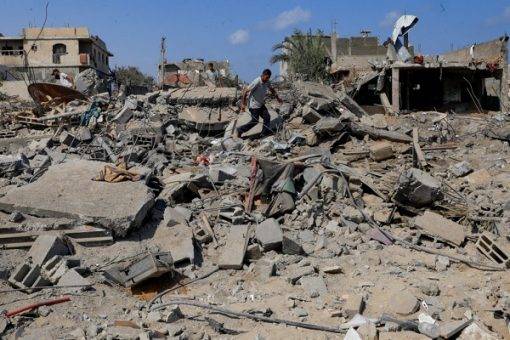By Palladium
For more than two months, Israel had planned a strike against senior Hamas leaders in Qatar, including its chief negotiator, Khalil Al-Hayya. Last Tuesday, the strike was carried out against the remonstrations of Israel’s Army chief of staff, Lt. Gen. Eyal Zamir, and Mossad chief, David Barnea, who felt the timing was awkward. The objectors were worried that Qatar was a United States ally, with the Americans operating the Al-Udeid Air Base in Qatar for more than two decades, its largest in the region. Only last year, the Qataris gifted President Donald Trump and the US a $400m Boeing 747 luxury jetliner to be used as Air Force One. The Tuesday attacks killed some six lower level Hamas officials but failed to get any of the group’s leaders.
The pretext for the air strike was that Qatar sheltered Hamas leaders who continue to direct attacks against Israel, especially last Monday’s Jerusalem killings that caused the death of six Israeli citizens. Prime Minister Benjamin Netanyahu had since the Hamas attacks against Israel on October 7, 2023 put pressure on Qatar to expel Hamas from Doha for continuing to orchestrate attacks against the state of Israel. Allegations against Qatar’s sponsorship of terrorism are not new. In 2017, Saudi Arabia-led Arab League countries imposed a blockade on Qatar for sponsoring terrorism and violating the 2014 Gulf Cooperation Council (GCC) agreement of which it was a signatory.
The League accused Qatar of fraternising with Iran and Turkey and the Muslim Brotherhood, all of which had become instruments of regional destabilisation. Israel understands the deep division in the region, especially in the context of the Sunni-Shiite divide, a division that is nevertheless not as sharp as it seems.
Though the blockade, which lasted until January 2021, did not achieve its aims of drastically downgrading the relationship between Qatar and Iran, or shutting down the hostile Al Jazeera cable television, or stopping military coordination with Turkey, it signposted the fault lines in the region that Israel could potentially exploit.
The irony is that Qatar offered to shelter Hamas at the instance of the US and Israel. But while the US under President Trump has since upgraded relations with Qatar, a part of which privately benefits the Trump family’s businesses, Israel’s relations with Qatar have remained fraught. It is not clear that the failure of the September 9 attack against Hamas leaders was due to a tipoff from the US – though this was denied, and Israel itself has claimed it acted independently – it has probably sent signals to the GCC that, in the context of Israel, their relations with and dependence on the US will remain far more intractable than they seem on the surface.
Worse, the hostage and ceasefire deals proposed by the US may now be hard to get back on line, while Israel may also begin gradually to recognise that military prowess, of which it has shown scintillating examples in recent months, has its limitations.













